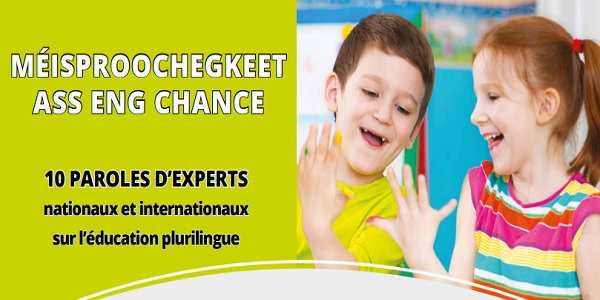
Thirty experts from Luxembourg and abroad have highlighted the benefits of plurilingualism in early childhood.
To underscore the scientific basis for plurilingual education in early childhood and illustrate the opportunities for early contact with different languages, the Luxembourg Ministry of National Education, Children and Youth has put together a poster and brochure with the words of thirty nationally and internationally recognised experts on the topic.
In addition to this publicity, a scientific council has been set up to support the implementation of the plurilingual education program, which is scheduled to enter into force in October 2017.
The scientific council gathers twelve national and international experts from diverse fields including early childhood, plurilingualism, language development and plurilingual education. Their opinions and constructive criticisms will contribute to the development of educational practice and ensure the relevance and coherence of efforts.
The council will meet twice a year and for one or two days in Luxembourg. The first meeting is scheduled for October 2017.
The implementation of plurilingual education in early childhood education and care (1 to 4 years) is thus supported and supervised at several levels. These include the specialised unit set up by the National Youth Service (SNJ), which can be reached by the education and reception services for advice and support. This unit also has the task of developing educational materials and specific training for education and reception staff.
Some of the priority tasks of the scientific council are to analyse the guidelines for plurilingual education and make recommendations, analyse the in-service training programme for pedagogical referents of the education services, analyse educational practice in education services, analyse educational materials in the field of plurilingual education, analyse research findings on plurilingual education and discussion of the impact of these results on educational practice, and discuss the continuity between the provision of plurilingual education in the education services and in primary schools.








